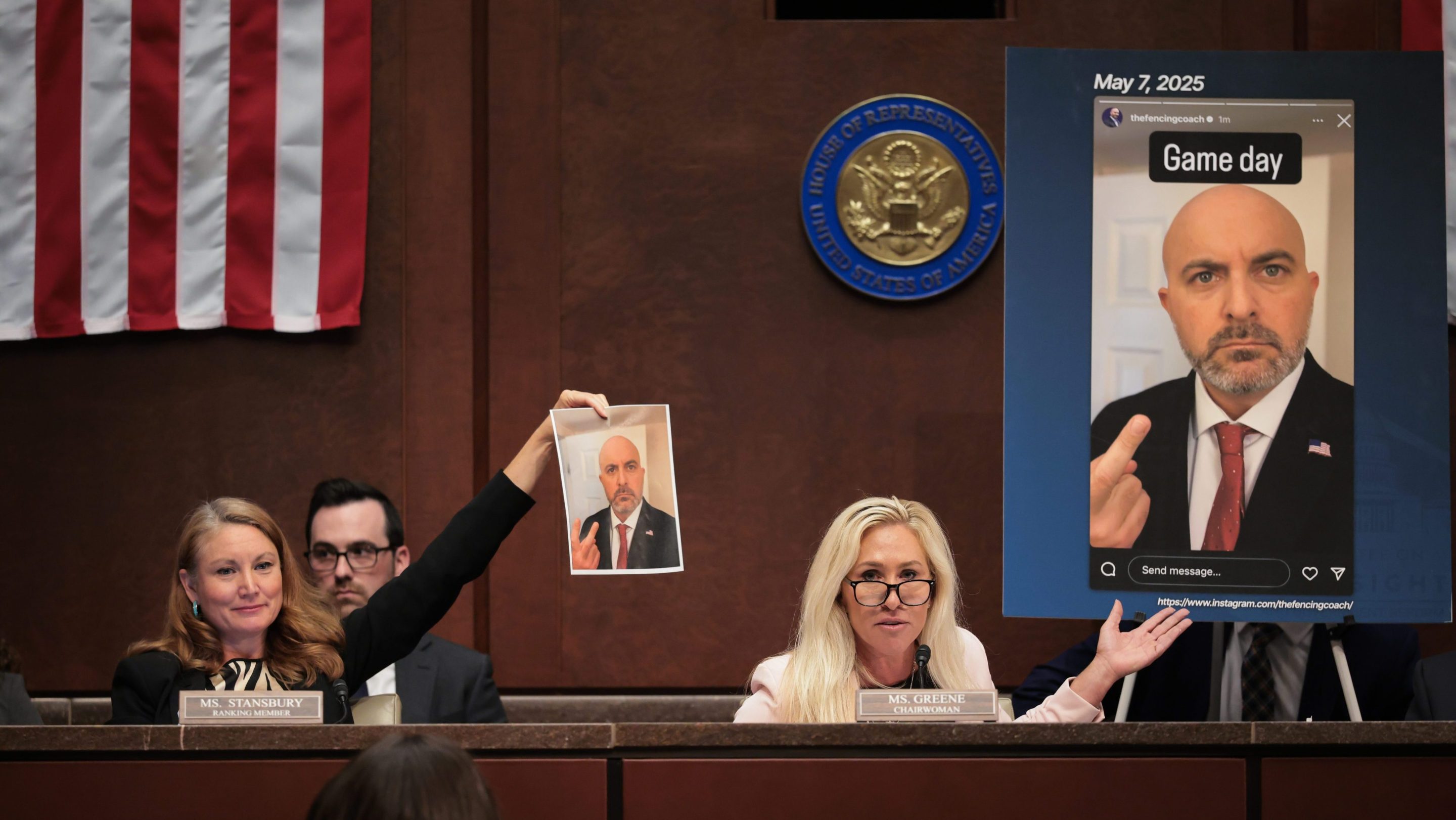The latest in the long line of futile congressional sports hearings happened Wednesday. You probably missed it, as most people did. I was one of about 1,000 people watching it, according to YouTube at the time. Since then, about 12,000 people—out of a country of more than 341 million—have watched, though of course there's no way to know how many watched for more than the 30 seconds it takes YouTube to count a view. Like the sports-centered hearings that came before it, about steroids in baseball and sexual abuse in gymnastics, it was mostly political theater. Where it differed is in the intended audience. Previous hearings were about creating sound bites for television. This one was for the memes.
Officially, Wednesday's DOGE subcommittee was called to discuss the viral story about a fencer who refused to compete against another fencer in a minor competition because her opponent was a trans woman. In reality, it was mostly yelling and grandstanding to be cut and clipped for the internet. The Republicans yelled at the Democrats. The Democrats yelled at the Republicans. The Republicans waved around Donald Trump's executive orders. The Democrats waved around charts.
As an actual act of government? Nothing was accomplished, and that's not really news because, for a while now—certainly predating a Trump presidency—that's how government has worked. That's the thing with efficiency: It's not a set value, like the number two or the temperature at which water boils. It's defined by the people who hold the power to craft a definition to their liking. That's how you end up with a committee about government efficiency whose hearing clocks in at well over three hours, and results in nothing.
If anything captured the lack of depth of this hearing, it was the repeated references to the Ted Stevens Act. Adopted in the 1990s, it lays out how Olympic sports are governed in this country. No one who cited it demonstrated any sort of basic understanding of how it actually works. Like when Republican Rep. Michael Cloud of Texas went on a tangent about how the Ted Stevens Act governs organizations like USA Fencing, which is true, and that those organizations have to follow laws like Title IX (which is false, Title IX only applies to education).
Later, Republican Rep. William Timmons of South Carolina twisted the words of USA Fencing's board chairman Damien Lehfeldt—who testified that the Ted Stevens Act meant they could not have rules that were more restrictive than their sport's international federation—into something more Fox News-friendly. Lehfeldt did his best to correct him, again explaining how the Ted Stevens Act works, but Timmons responded, "This executive order prohibits all entities that receive federal funds—which I know you do not—of allowing transgender men to compete in women's sports so that's basically your entire pipeline. Your main purpose is to figure out who we're gonna send to the Olympics." So the executive order only applies to organizations that get federal funds, which USA Fencing does not, but it still impacts USA Fencing because Olympics and college and stuff. Got it?
Timmons then claimed Congress would amend the Ted Stevens Act so that USA Fencing could lose its charter which, I must say, struck me as the most laughable thing said at the entire hearing. Congress has had athletes begging it for decades to amend the act. Think about the many scandals have plagued Olympic sports in this country since the 1990s, from widespread sexual abuse in gymnastics to sexual abuse in swimming, to sexual harassment across a wide swath of sports, and through each, Congress let the Ted Stevens Act stand as is. One is supposed to believe that all of those crises pale in comparison to a trans woman participating at a low-level competition. (And why this is the remit of an organization ostensibly addressing government inefficiency is anyone's guess. The best explanation given at the hearing, about 30 minutes in, was because oversight committee chairman James Comer said so.)
Players still test positive for steroids in baseball. Sexual abuse is still happening in many sports, including gymnastics, and the agency created by Congress to address it, SafeSport, just fired its CEO. If history is any guide, this hearing is likely to join the long list of congressional sport hearings that have been full of sound and fury, signifying a waste of time. For once, that might be a good thing.






